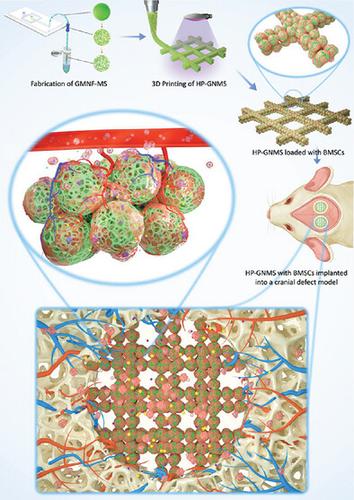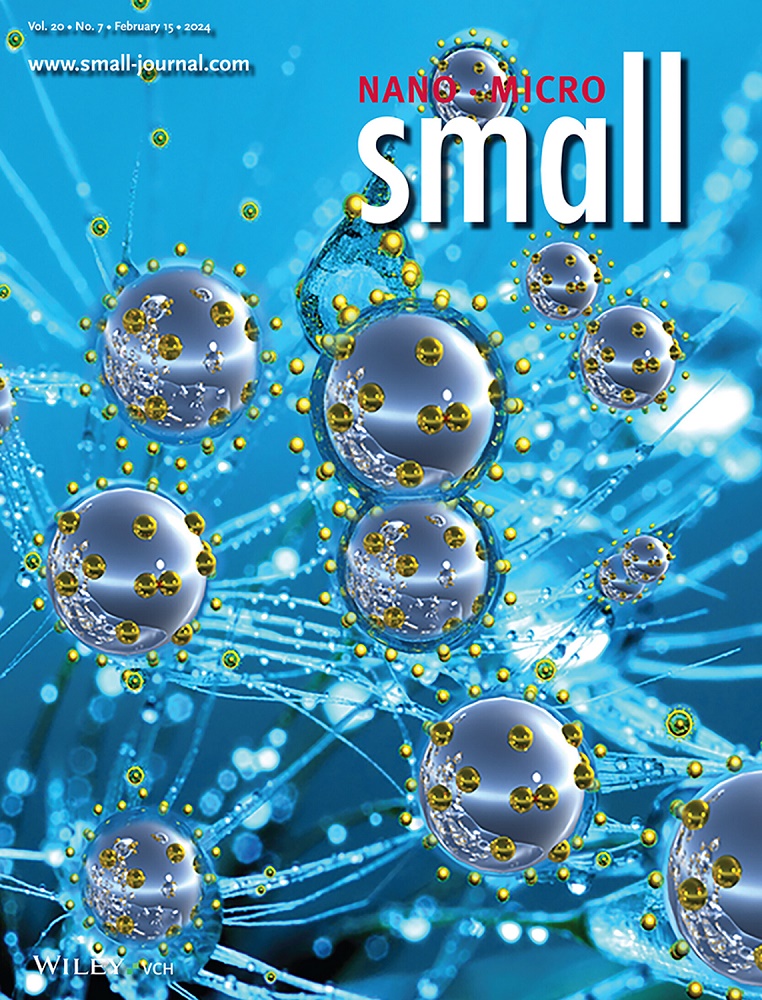3D Printing Hierarchical Porous Nanofibrous Scaffold for Bone Regeneration
IF 13
2区 材料科学
Q1 CHEMISTRY, MULTIDISCIPLINARY
引用次数: 0
Abstract
Current limitations in 3D printing pose significant challenges for the fabrication of hierarchical 3D scaffolds with nanofibrous structures that simulate the natural bone extracellular matrix (ECM) for enhanced bone regeneration. This study presents an innovative approach to 3D printing customized hierarchical porous scaffolds with nanofiber structures using biodegradable nanofibrous microspheres as the bio‐ink. In vitro investigations demonstrate that the hierarchical porous architecture substantially enhances cell infiltration and proliferation rates, while the nanofiber topology provides physical cues to guide osteogenic differentiation and ECM deposition. When serving as a cell carrier, the 3D‐printed nanofibrous scaffold promotes bone tissue regeneration and integration in vivo. Additionally, the facile and versatile chemical modification facilitates the precise tailoring of the scaffold's functionality. Using nanofibrous microspheres with highly biomimetic and versatile modification properties as the foundational constituent in this universal 3D printing methodology enables comprehensive manipulation of scaffolding biological properties, spanning from macroscopic external morphology to molecular‐scale biochemical kinetics, thereby addressing a diverse spectrum of clinical requisites.

用于骨再生的 3D 打印分层多孔纳米纤维支架
目前三维打印技术的局限性给制造具有纳米纤维结构的分层三维支架带来了巨大挑战,这种支架可以模拟天然骨细胞外基质(ECM),从而促进骨再生。本研究提出了一种创新方法,即使用生物可降解纳米纤维微球作为生物墨水,三维打印具有纳米纤维结构的定制分层多孔支架。体外研究表明,分层多孔结构大大提高了细胞浸润和增殖率,而纳米纤维拓扑结构则提供了引导成骨分化和 ECM 沉积的物理线索。作为细胞载体,三维打印纳米纤维支架促进了体内骨组织的再生和整合。此外,简便、多用途的化学修饰还有助于精确定制支架的功能。在这种通用三维打印方法中,使用具有高度仿生性和多功能改性特性的纳米纤维微球作为基础成分,可以全面操纵支架的生物特性,从宏观外部形态到分子尺度的生化动力学,从而满足各种临床需求。
本文章由计算机程序翻译,如有差异,请以英文原文为准。
求助全文
约1分钟内获得全文
求助全文
来源期刊

Small
工程技术-材料科学:综合
CiteScore
17.70
自引率
3.80%
发文量
1830
审稿时长
2.1 months
期刊介绍:
Small serves as an exceptional platform for both experimental and theoretical studies in fundamental and applied interdisciplinary research at the nano- and microscale. The journal offers a compelling mix of peer-reviewed Research Articles, Reviews, Perspectives, and Comments.
With a remarkable 2022 Journal Impact Factor of 13.3 (Journal Citation Reports from Clarivate Analytics, 2023), Small remains among the top multidisciplinary journals, covering a wide range of topics at the interface of materials science, chemistry, physics, engineering, medicine, and biology.
Small's readership includes biochemists, biologists, biomedical scientists, chemists, engineers, information technologists, materials scientists, physicists, and theoreticians alike.
 求助内容:
求助内容: 应助结果提醒方式:
应助结果提醒方式:


